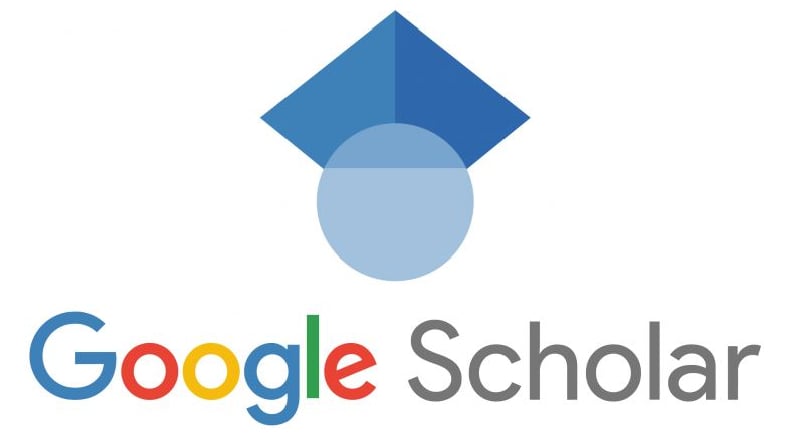The Uses of AI And Technology in Media and Material Development of Merdeka Belajar
Keywords:
Artificial Intelligence, Merdeka Belajar Curriculum, English LanguageAbstract
The advancement of AI and Technology has increased in numerous fields of our lives, and the education field has dealt with it. On the other hand, our national curriculum for education, called Kurikulum Merdeka, has flexibility in terms of learning, sources, and developing the material for the teaching and learning process. Along with the advancement of educational material in curriculum merdeka, numerous kinds of sources are utilized, like books, e-learning tools, media of teaching, and so on. There was also an effect of AI and Technology as platforms for learning sources, particularly English as one of the languages taught within the Indonesian Education field. The objective of this research is to determine the significance of AI and technology in the development of Merdeka Belajar learning resources for teachers. Furthermore, the purpose of this research is to investigate AI and technology which may be used as a variety of learning methods and material development utilizing a Merdeka Belajar curriculum, to make learning in class more enjoyable. This research employs library research as an approach to determining which AI technologies are employed in the advancement of English resources based on the Merdeka Belajar curriculum. Data is collected from previous studies on related subjects. Based on the findings of this study, we can identify the use of AI and technology to build English learning media and materials based on the Merdeka Belajar Learning Guidelines.
Downloads
References
Andariyani, N., & Nurhajati, D. (2016). the Implementation of Teaching English Based on Curriculum 2013 Applied By an English Teacher of Junior High School. English Education: Journal of English Teaching and Research, 1(2), 9. https://doi.org/10.29407/jetar.v1i2.480
Creswell, J., & Poth, C. (2016). Second Edition QUALITATIVE INQUIRY& RESEARCH DESIGN Choosing Among Five Approaches. In SAGE Publications (Vol. 3).
Edwards, B. I., & Cheok, A. D. (2018). Why Not Robot Teachers: Artificial Intelligence for Addressing Teacher Shortage. Applied Artificial Intelligence, 32(4). https://doi.org/10.1080/08839514.2018.1464286
Faulinda, E. N., & Aghni Rizqi Ni’mal, ‘Abdu. (2020). Kesiapan Pendidikan Indonesia Menghadapi era society 5.0. Edcomtech : Jurnal Kajian Teknologi Pendidikan, 5(1), 61–66.
Fukuyama, M. (2018). Society 5.0: Aiming for a New Human-centered Society. Japan SPOTLIGHT.
Golshan, N., & Tafazoli, D. (2014). Technology-enhanced Language Learning Tools in Iranian EFL Context: Frequencies, Attitudes and Challenges. Procedia - Social and Behavioral Sciences, 136, 114–118. https://doi.org/10.1016/j.sbspro.2014.05.299
Izza, A. Z., Falah, M., & Susilawati, S. (2020). Studi literatur: problematika evaluasi pembelajaran dalam mencapai tujuan pendidikan di era merdeka belajar. Konferensi Ilmiah Pendidikan Universitas Pekalongan 2020.
Kemendikbud. (2021). Menyiapkan Pendidik Profesional di Era Society 5.0. In Directorat Jenderal PAUD, Dikdas dan Dikmen Kementerian Pendidikan, Kebudayaan, Riset dan Teknologi.
Kementerian Pendidikan dan Kebudayaan. (2019). Digitalisasi Sekolah. Jendela Pendidikan Dan Kebudayaan, 10.
König, P. D., & Wenzelburger, G. (2014). Toward a Theory of Political Strategy in Policy Analysis. Politics and Policy, 42(3). https://doi.org/10.1111/polp.12076
Liu, X. (2022). Design of Artificial Intelligence-Based English Network Teaching ( AI-ENT ) System. 2022.
Mulyadi, M., Helty, H., & Vahlepi, S. (2022). Makna Merdeka Belajar dan Penguatan Peran Guru di Sekolah Menengah Pertama Negeri 5 Muaro Jambi. Jurnal Ilmiah Dikdaya, 12(2). https://doi.org/10.33087/dikdaya.v12i2.320
Nursalam, N., Fikriana, R., Devy, S. R., Ahsan, A., Airlangga, U., Airlangga, U., Airlangga, U., Brawijaya, U., & Major, N. (2020). THE DEVELOPMENT OF SELF-REGULATION MODELS. Systematic Reviwa in Pharmacy, 11(6).
Seo, K., Tang, J., Roll, I., Fels, S., & Yoon, D. (2021). The impact of artificial intelligence on learner–instructor interaction in online learning. International Journal of Educational Technology in Higher Education, 18(1). https://doi.org/10.1186/s41239-021-00292-9
Siskha Putri Sayekti. (2022). SYSTEMATIC LITERATURE REVIEW: PENGEMBANGAN ASESMEN PEMBELAJARAN KURIKULUM MERDEKA BELAJAR TINGKAT SEKOLAH DASAR. Prosiding Seminar Nasional Pendidikan Guru Sekolah Dasar, 2(1). https://doi.org/10.25134/prosidingsemnaspgsd.v2i1.21
Stošić, L. (2015). The importance of educational technology in teaching. International Journal of Cognitive Research in Science, Engineering and Education, 3(1), 111–114. https://doi.org/10.23947/2334-8496-2015-3-1-111-114
Sugiharyanti, E. (2022). Penerapan Model Project Based Learning Berbantuan Moodle E-Learning untuk Meningkatkan Prestasi Belajar Bahasa Inggris. Ideguru: Jurnal Karya Ilmiah Guru, 7(2). https://doi.org/10.51169/ideguru.v7i2.364
UNESCO. (2019). Beijing Consensus on Artificial Intelligence and Education. International Conference on Artificial Intelligence and Education, Planning Education in the AI Era: Lead the Leap, Beijing, 2019.
Vhalery, R., Setyastanto, A. M., & Leksono, A. W. (2022). KURIKULUM MERDEKA BELAJAR KAMPUS MERDEKA: SEBUAH KAJIAN LITERATUR. Research and Development Journal of Education, 8(1). https://doi.org/10.30998/rdje.v8i1.11718
Yamin, M., & Syahrir, S. (2020). PEMBANGUNAN PENDIDIKAN MERDEKA BELAJAR (TELAAH METODE PEMBELAJARAN). Jurnal Ilmiah Mandala Education, 6(1). https://doi.org/10.36312/jime.v6i1.1121
Downloads
Published
How to Cite
Issue
Section
License
Copyright (c) 2023 Sela Eka Melati, Nurul Aini, Anisya Fatul Wahyuni

This work is licensed under a Creative Commons Attribution 4.0 International License.






